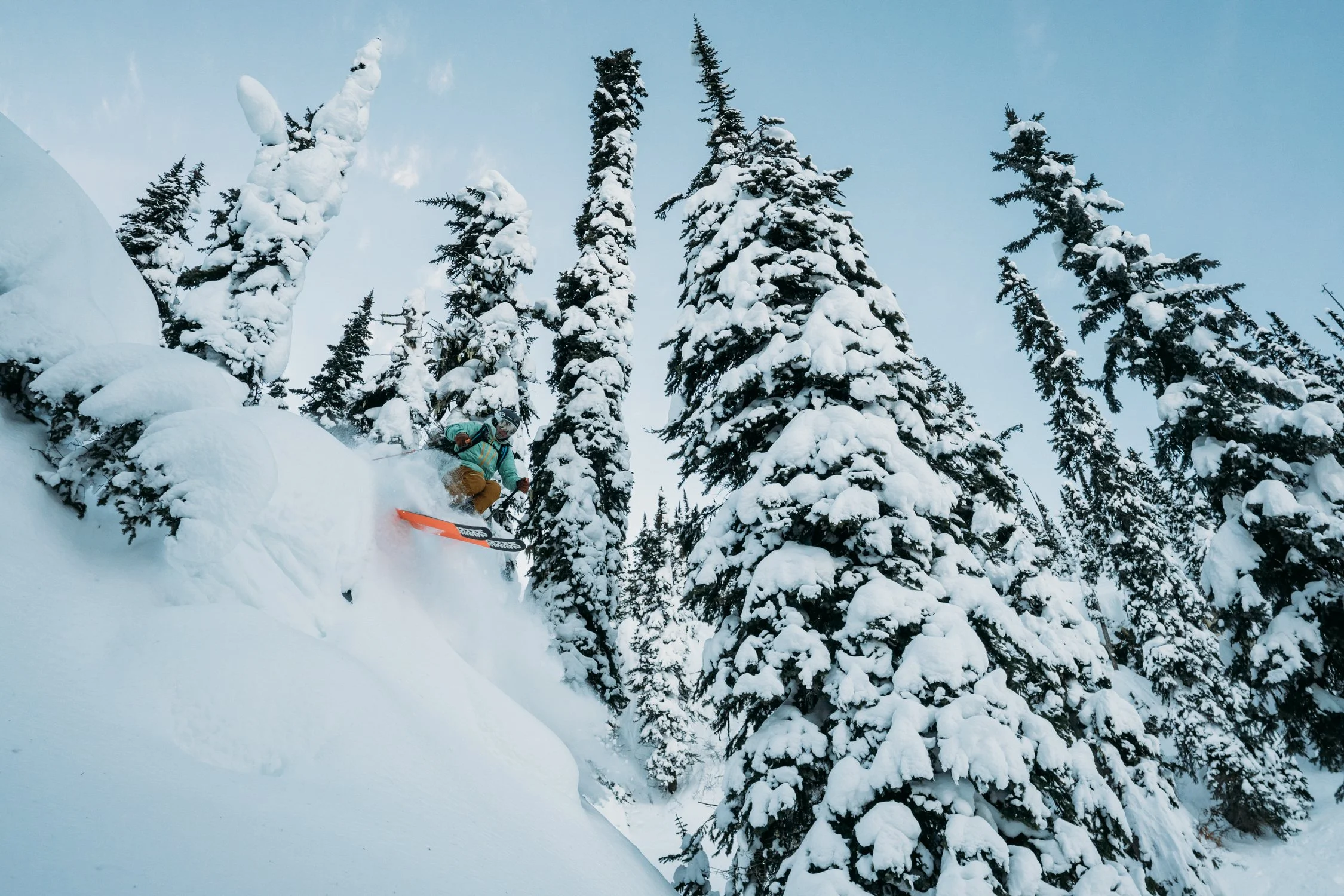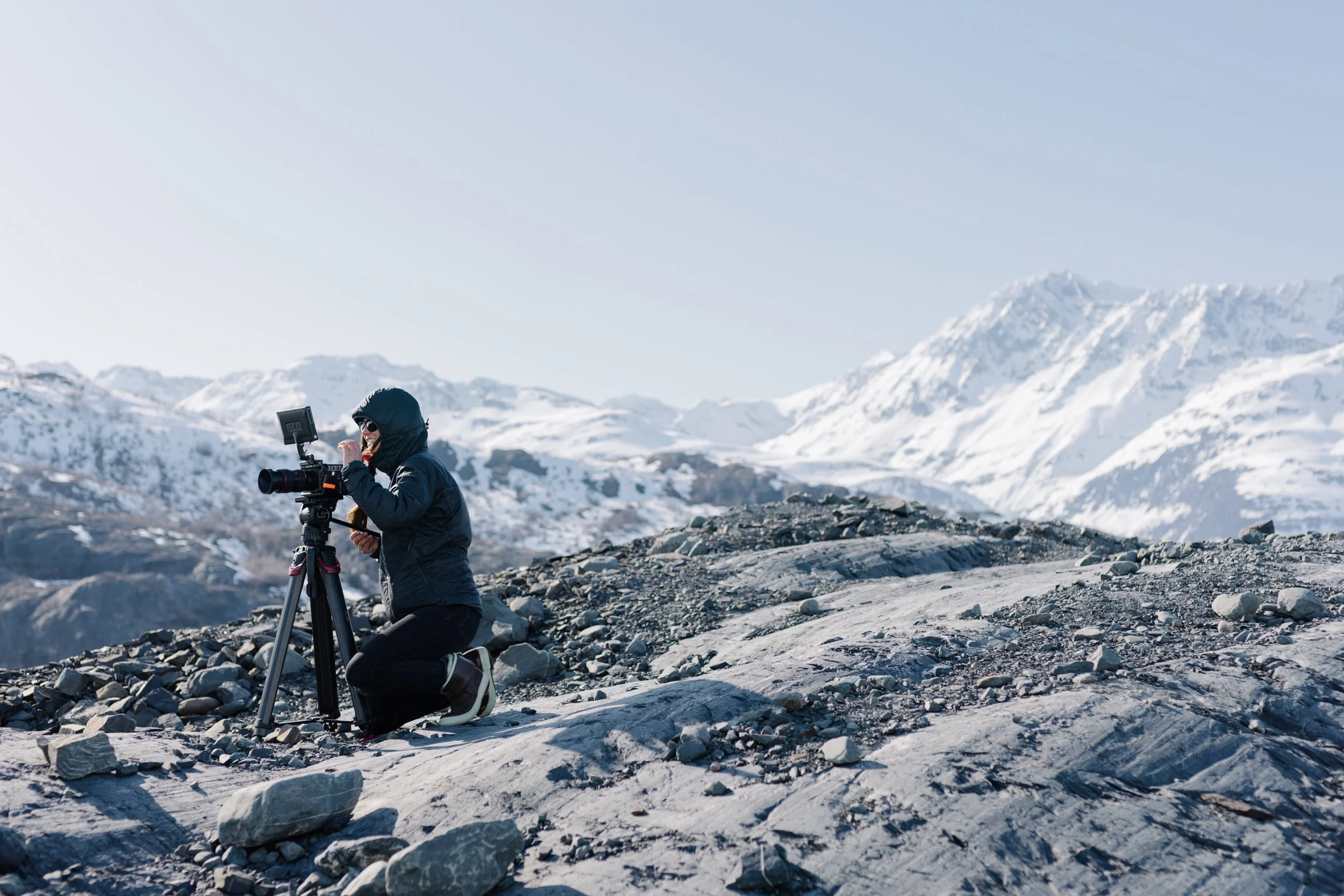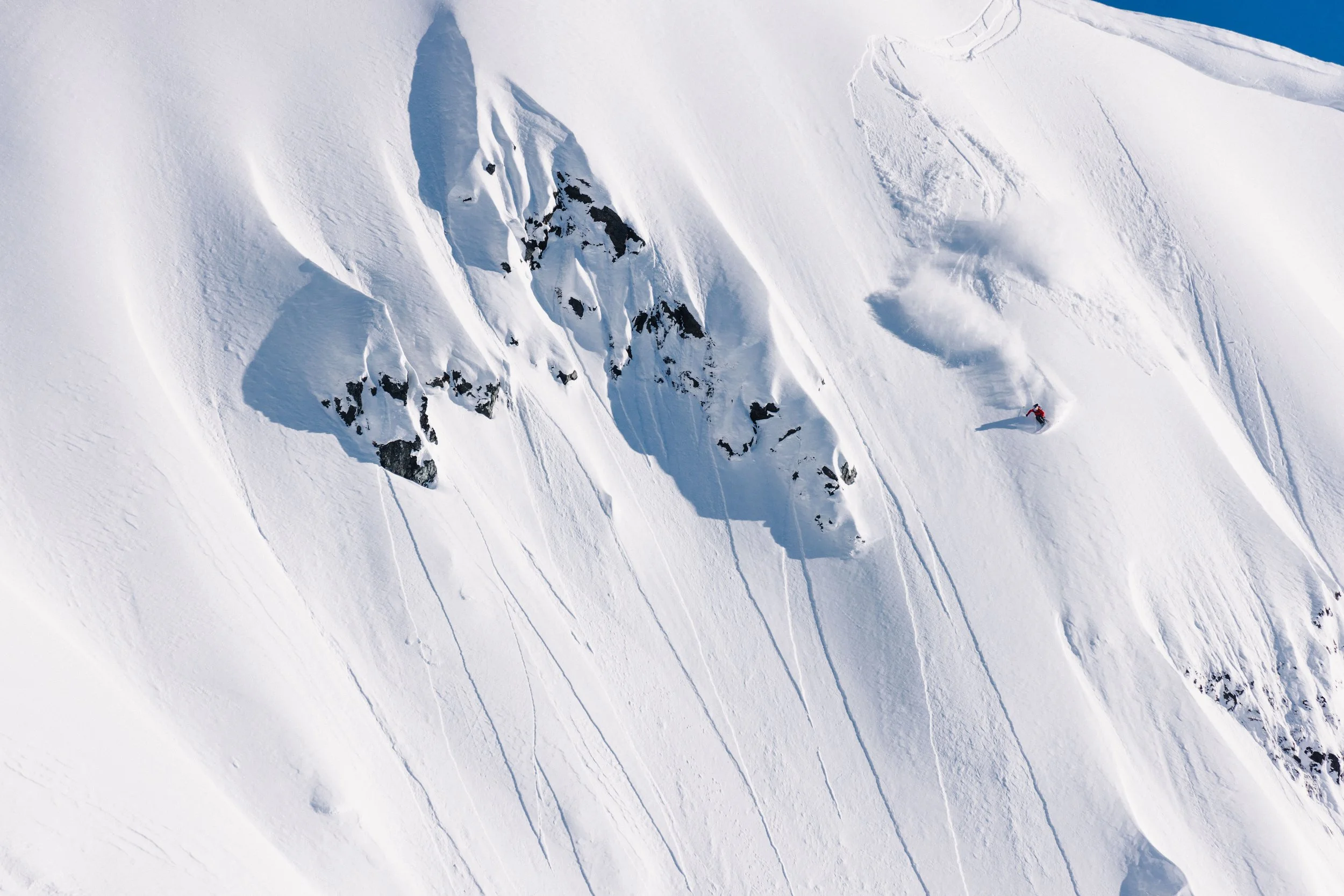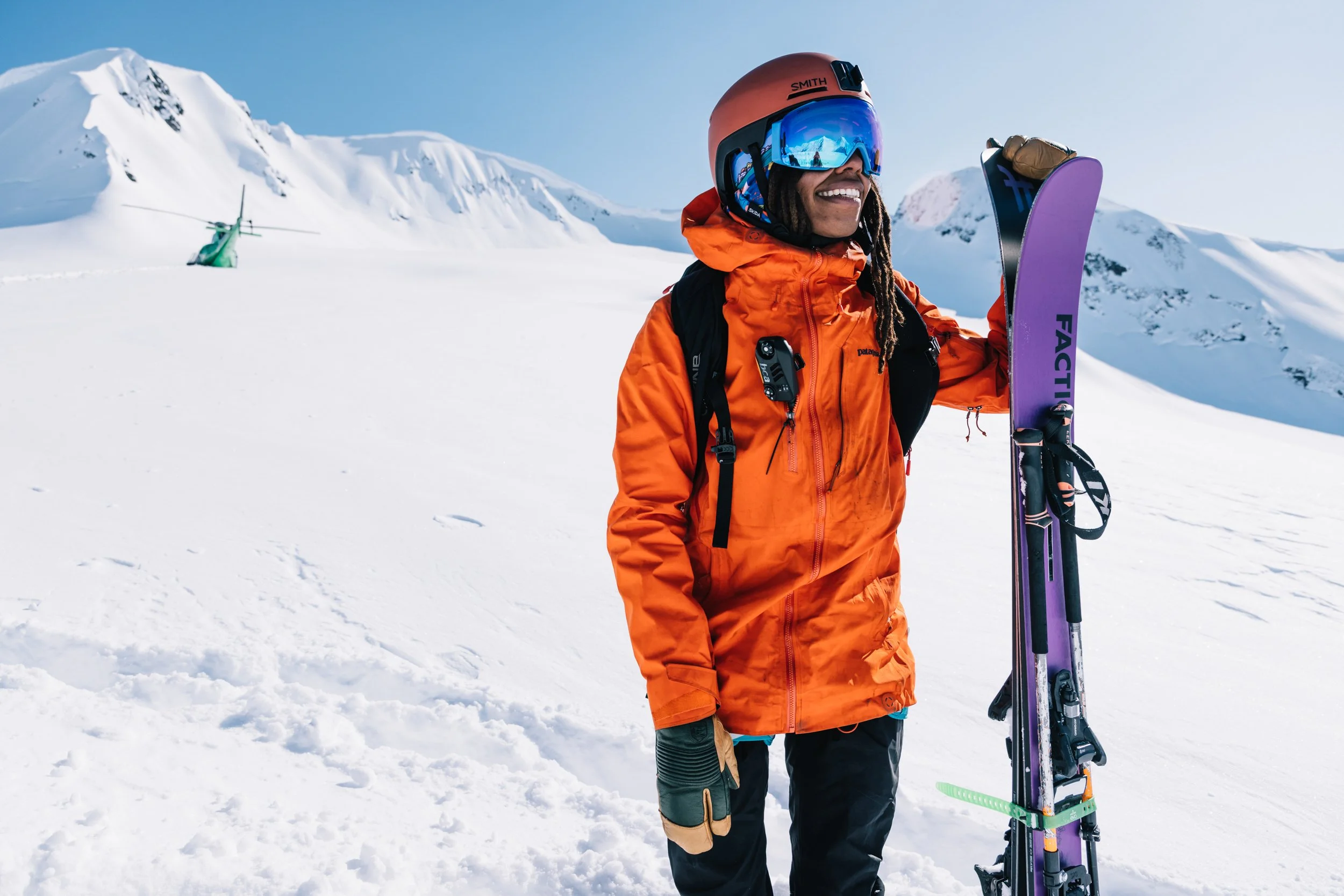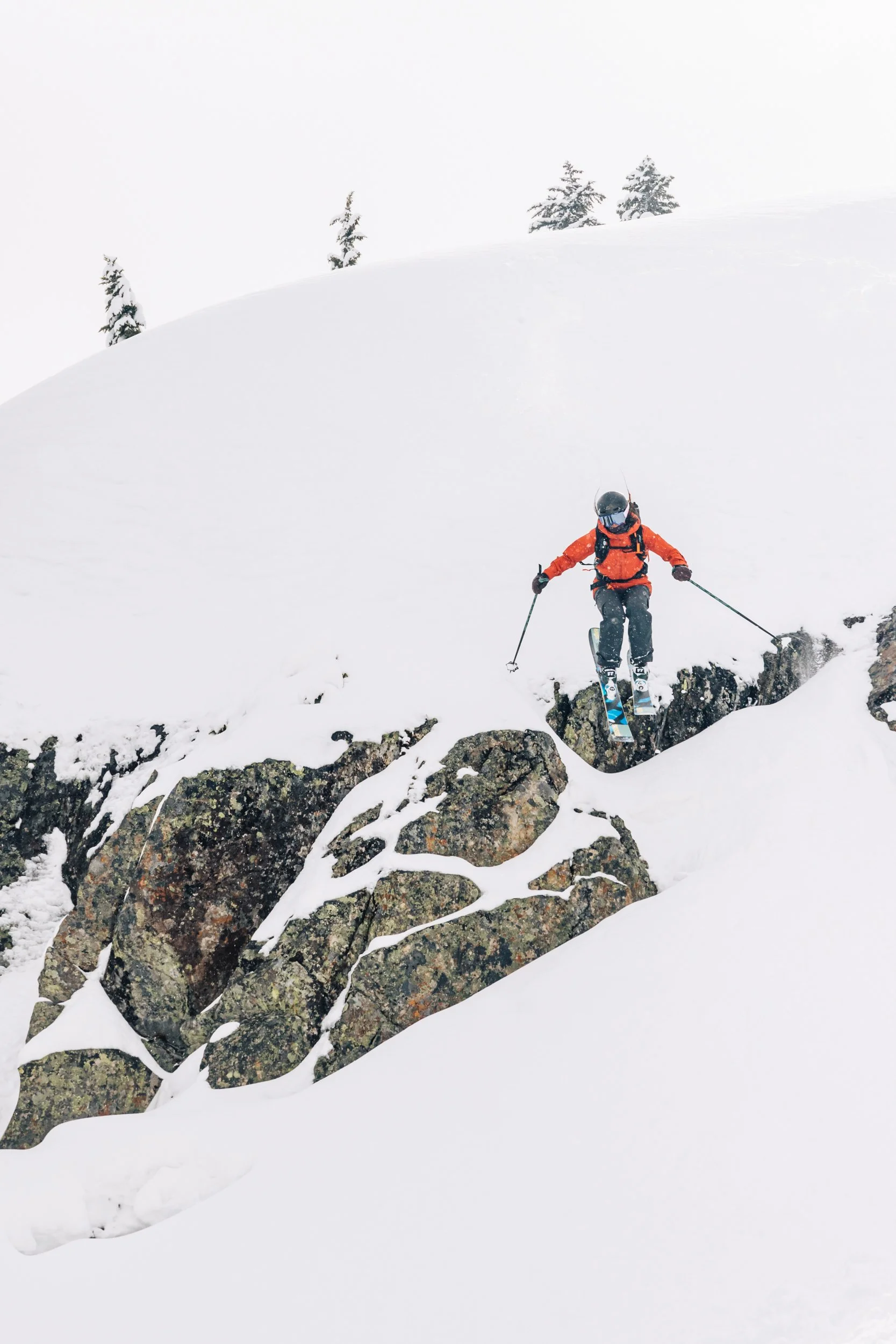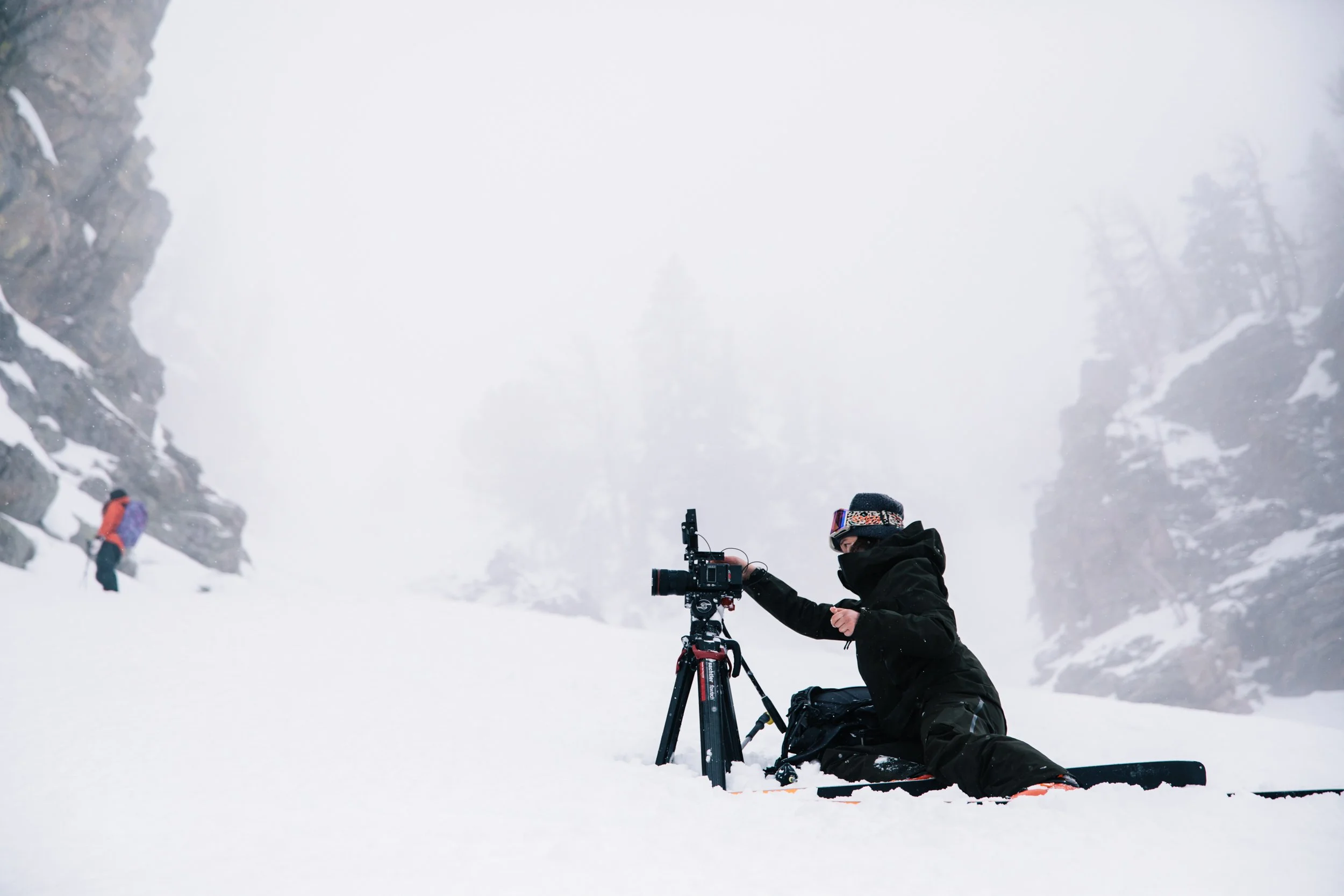Nexus: Not Your Average Ski Film
Review of and reflections on a new women-led ski film.
Maeve Goodrich (she/her) ’23
When I first slid into Nexus’s Instagram DMs this fall, I wasn’t expecting a response. Wine bottle in hand, I went in bold with two exclamation points (“Nexus Folks!!) and an exceedingly vague interview request (“Let me know if anyone is around to chat, you are all an inspiration”). To my great surprise and slight terror, Nexus got back to me within 48 hours. Their response included a grand total of six exclamation points– this was going to be fun.
Nexus, a new adventure documentary out this year, is the first ever feature length ski film starring a completely female-identifying cast and crew. From tip to tail, this story was directed, produced, and edited by women.
Director Shannon Corsi, “Noticed that representation for women in ski films was a little bullshit,” super two-dimensional, “their story would be ‘I’m a woman and I’m in the mountains’ and that was it, that was all.” Corsi found herself saying, “That can’t be the most interesting thing about them!” That is, these female skiers are brilliant and well-rounded and talented, they need to take up more time and space on the big screen.
“their story would be ‘I’m a woman and I’m in the mountains’ and that was it, that was all.” Corsi found herself saying, “That can’t be the most interesting thing about them!”
While Lynsey Dyer’s Pretty Faces broke serious ground with its all-female cast back in 2014, there hadn’t been any big budget womens ski films since. So Corsi, along with collaborators Sophie Danison and Katie Losancich, took a risk.
“Fine,” said Corsi, “We’ll do it ourselves.”
A quick Google search will cite “nexus” as a term rooted in connection, in a series of connections, between people, places or things. Or, as Corsi puts it, “the centerpoint between various lines.” Skiing is the centerpoint: the connector of people, the creator of chosen family. True to form, Nexus is dedicated to combating the age-old moniker “one is enough” – one female skier in a sea of, very likely, white men is enough for this segment, movie, mountain – by documenting 10 women (five sets of friends) absolutely stomping it in the backcountry, the frontcountry, and everywhere in between.
After a year and a half of pitching and raising money, the team started reaching out to skiers. They talked to women they knew, expecting many “no’s,” because professional athletes are busy people. Everyone said yes. Even the legendary Michelle Parker. When Corsi got off the phone with her, the team could hardly believe it. They “were just like, ‘What??’”
Corsi explains: “More experienced people have pitched this idea before and it just didn’t get picked up. We hit the timing just right with this project.” She credits “a growing movement towards increased inclusivity in ski media” for the film’s success, and the Nexus folks took advantage of this shift to push inclusivity farther into the mainstream.
Most of their footage was shot in 2021, an infamously bad snow year, but everyone battled it out and the final product is worth it. Nexus is a funny, important, epic docu-film following badass women over badass terrain. It does more than that though.
Caite Zeliff, pro skier and Jackson, Wyoming royalty (she won the Kings and Queens of Corbets competition in 2018 and 2019 and soared into third place in 2020), agrees. “This isn’t just ski porn and a sick playlist,” she says. “People are ready for more of a storyline now. They’re ready for this, they’re excited about it.”
And the public has been, too. Nexus won the International Freeski Film Festival’s “Best Storytelling” award in the “Pro” category and enjoyed an incredibly successful countrywide tour.
Part of the success and wide appeal of the film is that Nexus producers weave the stories of these 10 women together, portraying their histories and positionalities in a way that adds to their gnarly edits, rather than detracting from them. Relatability, they prove, does not have to be the downfall of the ski movie. It can be the enhancer.
“It’s crazy that it’s so foreign, that I’m not used to spending time in the mountains with women,” Zeliff says. And she’s adamant that Nexus isn’t just some “girl power” movie, produced solely for empowerment’s sake. That path of thinking is reductive, damaging, and insults the film’s prowess.
Nexus, as Zeliff so aptly states, exists, in part, to dispute the validity of this “one is the norm” practice in the ski industry, but also because it features incredible talent – skiers performing at the highest levels of their sport. Just because a piece of media is groundbreaking doesn’t mean it has to sacrifice any technical prowess on the parts of its cast and crew.
When I talked to Nexus skiers Krystin Norman and Sasha Dingle, the cousins were sitting down to coffee together. Both of their mothers fled the Vietnam war and came to the U.S. in 1975, just before the fall of Saigon. Dingle’s mom started skiing first, at Big Bear Mountain just outside of L.A., she met Dingle's dad and the pair kindled their romance on the slopes. Norman's mom met her husband on a chairlift during a ski trip with Dingle’s mother. Both women went on to make ski access a priority for their children. Norman and Dingle, one could almost claim, exist because of skiing, and here they are today: absolutely shredding.
“We realize that a lot of stories about BIPOC athletes are about what you need to overcome,” says Dingle in regards to the pair’s Nexus participation, “and no question the barriers to entry are high, far too high… But we wanted to show how normal it can be to be a BIPOC skier.” Norman and Dingle say skiing has always been home, it’s how they’ve made their most important connections, it is the source of a potent and recurring joy.
Brooklyn Bell [right], Nexus athlete, outdoor advocate and pro-skier (among many other things) says towards the end of the film that, as a Black female skier, “experiencing joy out here is the biggest form of resistance. It’s kind of, like, a big old ‘eff you,’ quite frankly.”
“experiencing joy out here is the biggest form of resistance. It’s kind of, like, a big old ‘eff you,’ quite frankly.”
Dingle credits the ski hill as the first place where the way she experienced herself internally “matched the way the world experienced her externally: as strong, confident, playful.” As a multiracial, Vietnamese-American woman, as a woman working and competing in male dominated spaces, Dingle first felt “like her truest self” on the mountain, and then learned to apply this cohesion to other arenas in her life. Skiing allowed her to fully realize her power, to say “eff you[r]” biases. I am competent and talented, I’ll do what I want.
Norman also speaks to some of the systemic discrimination built into the ski industry. It’s no secret that skiing is an overwhelmingly white pastime, and one that costs lots and lots of money. When Norman first moved to the West Coast, she didn’t know anyone who skied and, like most people, she couldn’t afford it. This is a woman who grew up skiing competitively, she’s been on and off the Freeride World Tour since 2017. She is the real deal. Her initial inability to buy a season pass, replace her skis, whatever, speaks to the pervasiveness of the issue– a lifelong skier, now a Pro, couldn’t hit the hill.
After she got her feet under her, Norman started learning about backcountry skiing and said to herself, “I have no idea how I’m going to afford this ever.” Eventually she found herself in her first avalanche safety class, where she was “one of two women and the only person there with any melanin in their skin.” She began to more decisively note the serious deficits present in ski education and access, and their disproportionate effect on women, “especially women of color.” She decided to do something about it.
Enter the SheJumps Snowpack Scholarship Program. Initially launched in 2018 with sponsorships from Fremont Brewing Company and K2 Women’s Ski Alliance, Snowpack’s objective is to provide free or low cost AIARE courses, as well as Ikon Passes, for women. 50% off scholarships yearly are reserved for female-identifying BIPOC skiers.
More joy, more resistance.
Keep reading, there’s more below this awesome photo!
Both Norman and Dingle say that Nexus is “the film we’ve waited for.” The cousins’ stories are so important, and in sharing, they aim to do what their mothers did for them. That is, to help give other women the opportunity to “be who they are,” through skiing.
I’ve been skiing since I could walk. This is a privilege I inherited from my parents. I started racing when I was six and grew up in that community, financed by my parents and a whole community donating helmets and skis and car-rides to icy New Hampshire mountains. This is to say that I am extraordinarily privileged. I was privileged when I fell out of love with skiing as a teenager and privileged when I returned to her towards the end of high school, ripping slushy spring groomers at my home hill. I am the same now, going to school in Colorado and making that drive up I-70 whenever I can, for having avalanche equipment and a new-ish coat.
Even as a white female-identifying skier, I feel profoundly seen by Nexus. I feel held. Part of the film’s brilliance resides in how deftly it mixes the familiar with the aspirational. I see myself here. More importantly, female-identifying BIPOC skiers have the opportunity to see themselves here. We see ourselves, we see our friends in the tailgate debriefs, in the chairlift sandwiches, in the beer and the Red Bull and the swearing and the laughter. We see what we could grow to be, and, as cheesy as it sounds, the ineffable power of female friendship.
As Corsi explains, Nexus’s commercial success opens the door for more “new people to come in with better ideas.” Nexus is a jumping off point– bedrock creators can build on, that big sponsors can reference as a reason to endorse even more important projects in the future.
Zeliff says it best, “These women are beautiful. Beautiful. And strong as hell. We’ve shared the human experience with such grace.”

